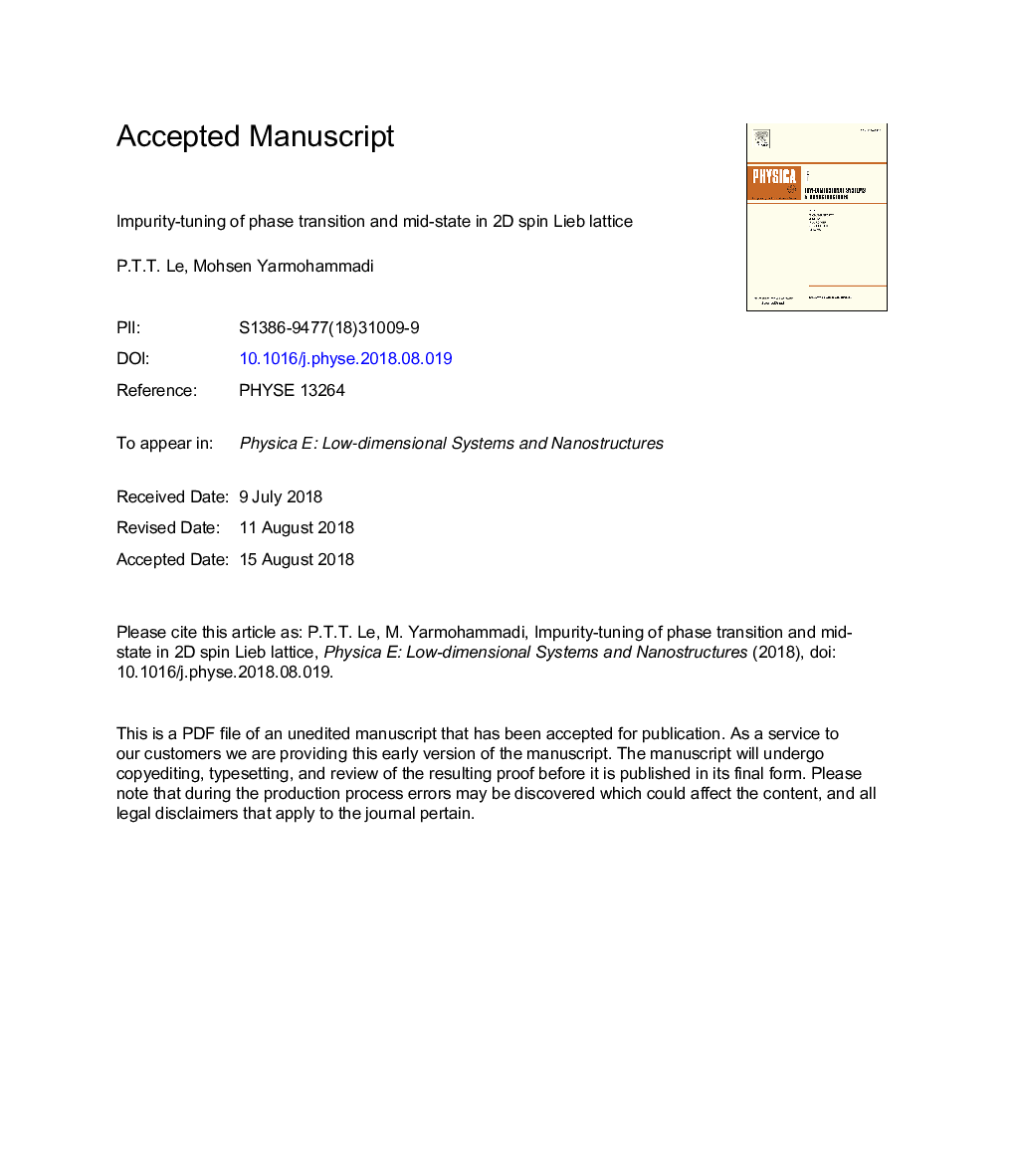| Article ID | Journal | Published Year | Pages | File Type |
|---|---|---|---|---|
| 10155668 | Physica E: Low-dimensional Systems and Nanostructures | 2019 | 9 Pages |
Abstract
The bosonic phase of the three-band [one flat band and two dispersive bands] Lieb lattice can be significantly influenced by the impurity. Taking into account the combined Zeeman magnetic field, the next-nearest-neighbor (NNN) coupling, and the Dzyaloshinsky-Moriya interaction (DMI), we demonstrate this by studying the Heisenberg model on the spin Sâ¯=â¯1â2 Lieb lattice. We perform numerical calculations of the density of states (DOS) within the Green's function method and the full-consistent Born approximation. The flat band becomes unstable upon the inclusion of the impurity and new degenerate- and mid-states appear. Our numerical results show that the energy of these states depends strongly on the NNN coupling, DMI, and the Zeeman splitting effect. Furthermore, we found different phase transitions depending on the strengths of potentials above. Also, the number of van Hove singularities provided by DOS have a high susceptibility to the Hamiltonian model terms, which provide an intriguing possibility to control the finite impurity doping.
Related Topics
Physical Sciences and Engineering
Materials Science
Electronic, Optical and Magnetic Materials
Authors
P.T.T. Le, Mohsen Yarmohammadi,
